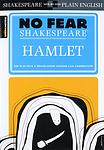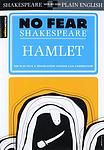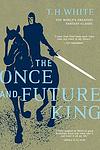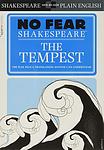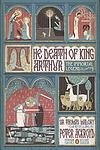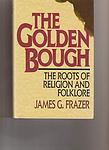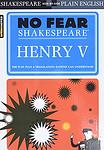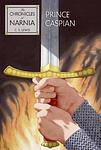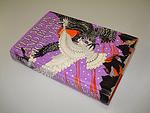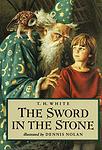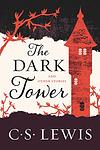The Greatest British "Nobility" Books of All Time
Click to learn how this list is calculated.
This list represents a comprehensive and trusted collection of the greatest books. Developed through a specialized algorithm, it brings together 300 'best of' book lists to form a definitive guide to the world's most acclaimed books. For those interested in how these books are chosen, additional details can be found on the rankings page.
Genres
The category of "Nobility" in books encompasses stories that revolve around the lives of aristocrats, royals, and other members of high society. These books often explore the themes of power, wealth, and privilege, as well as the struggles and challenges faced by those who hold such positions. The characters in these books are often complex and multi-dimensional, with their personal lives and relationships playing a significant role in the plot. Overall, the category of "Nobility" offers readers a glimpse into the glamorous and often tumultuous world of the upper class.
Countries
Date Range
Reading Statistics
Click the button below to see how many of these books you've read!
Download
If you're interested in downloading this list as a CSV file for use in a spreadsheet application, you can easily do so by clicking the button below. Please note that to ensure a manageable file size and faster download, the CSV will include details for only the first 500 books.
Download-
1. Hamlet by William Shakespeare
This classic play revolves around the young Prince of Denmark who is thrown into a state of emotional turmoil after his father's sudden death and his mother's quick remarriage to his uncle. The prince is visited by the ghost of his father who reveals that he was murdered by the uncle, prompting the prince to seek revenge. The narrative explores themes of madness, revenge, and moral corruption as the prince navigates the complex political and emotional landscape of the Danish court.
-
2. First Folio by William Shakespeare
This collection is a compilation of 36 plays by a renowned English playwright, published seven years after his death. It includes comedies, histories, and tragedies, some of which had never been published before. Notable works in the compilation include "Macbeth," "Julius Caesar," "Twelfth Night," "The Tempest," and "As You Like It." The collection is considered one of the most influential books ever published in the English language, as it preserved many of the playwright's works that might have otherwise been lost.
-
3. Orlando: A Biography by Virginia Woolf
The novel follows the life of a young nobleman in Elizabethan England who inexplicably transforms into a woman at the age of 30 and lives on for three centuries without aging. Throughout the centuries, the protagonist experiences various historical events, engages in relationships with both men and women, and explores the complexities of gender identity and sexuality. The book is an exploration of the fluidity of gender and time, as well as a critique of societal norms and expectations.
-
4. The Woman in White by Wilkie Collins
A captivating tale of mystery and suspense, "The Woman in White" follows the story of a young art teacher, Walter Hartright, who encounters a mysterious woman dressed in white on a moonlit road. The woman is revealed to be a mental asylum escapee, and as Hartright delves into her story, he uncovers a web of deceit, madness, and dangerous secrets involving a wealthy, titled family. The narrative explores themes of identity, insanity, and the abuse of power, with a complex plot filled with twists and turns.
-
5. Lady Chatterley's Lover by D. H. Lawrence
"Lady Chatterley's Lover" is a controversial novel that explores themes of class, sexuality, and the human condition. The story revolves around a young, upper-class woman married to a paralyzed war veteran who, feeling emotionally and physically neglected, embarks on a passionate affair with the estate's gamekeeper. The narrative delves into the protagonist's sexual awakening and her struggle against societal norms, ultimately advocating for emotional honesty and physical intimacy as essential components of a fulfilling life.
-
6. Macbeth by William Shakespeare
This classic play follows the tragic tale of Macbeth, a Scottish general whose ambition is sparked by a prophecy from three witches that he will one day become King of Scotland. Consumed by ambition and spurred on by his wife, Macbeth murders King Duncan and takes the throne. However, guilt and paranoia plague him, leading to a reign of terror and further bloodshed. His desperate attempts to cling onto power lead to his downfall, illustrating the destructive power of unchecked ambition.
-
7. The Once and Future King by T. H. White
This novel is a retelling of the Arthurian legend, from Arthur's childhood tutelage under the wizard Merlyn to his eventual death. The story follows Arthur's journey from a naive boy to a wise and just king, his establishment of the Round Table, his marriage to Guinevere, and his complex relationship with his illegitimate son, Mordred. The narrative explores themes of power, justice, war, and human nature, offering a nuanced and humanizing portrayal of a well-known mythical figure.
-
8. King Lear by William Shakespeare
This classic tragedy revolves around the aging King Lear, who decides to divide his kingdom among his three daughters based on their declarations of love for him. The two elder daughters, Goneril and Regan, flatter him with insincere praises, while the youngest, Cordelia, refuses to play the game and is disowned. As the king's sanity deteriorates, his kingdom falls into chaos under the rule of his deceitful elder daughters. The play explores themes of power, loyalty, madness, and justice, culminating in a tragic ending where almost all the main characters, including King Lear and Cordelia, die.
-
9. The Tempest by William Shakespeare
"The Tempest" is a classic play about a sorcerer and rightful Duke of Milan who has been stranded on an island for 12 years with his daughter after being betrayed by his brother. Using his magical powers and the help of an airy spirit, he conjures a storm to shipwreck his brother and other enemies on the island. The narrative explores themes of revenge, power, magic, and forgiveness as the sorcerer manipulates events on the island to regain his dukedom and secure a good future for his daughter.
-
10. Le Morte d'Arthur by Thomas Malory
This classic work is a compilation of stories and legends about the legendary King Arthur, his knights, and the Round Table. It tells of Arthur's rise to power, his quest for the Holy Grail, and his tragic downfall. The book, written in the 15th century, is considered one of the most influential pieces of Arthurian literature and has significantly shaped the modern perception of Arthur, Merlin, Guinevere, Lancelot, and other iconic characters.
-
11. The Daughter of Time by Josephine Tey
A detective, laid up in the hospital, becomes fascinated with a portrait of Richard III, the historical figure accused of murdering his nephews to secure his throne. He decides to apply his investigative skills to delve into the mystery, using historical documents and records as his clues. As he pieces together the puzzle, he begins to question the accepted narrative of Richard as a villain, suggesting that this image was a fabrication by the Tudors to legitimize their own claim to the throne.
-
12. Gormenghast by Mervyn Peake
Set in a vast, crumbling castle named Gormenghast, the story follows the life of Titus Groan, the heir to the Earl of Groan. The narrative explores the complex, rigidly structured society within the castle and the struggles and intrigues of its eccentric characters, particularly the scheming kitchen boy Steerpike. As Titus grows older, he begins to rebel against the stifling traditions of Gormenghast, setting the stage for a dramatic clash between the old and the new.
-
13. The Golden Bough by James George Frazer
"The Golden Bough" is a comprehensive study on mythology and religion, exploring the common themes found in different cultures around the world. The author uses a wide range of sources to argue that human belief progressed through three stages: primitive magic, replaced by religion, which in turn was replaced by science. The book delves into various rituals and customs, including the concept of the dying god in mythology and the role of fertility rites in agriculture. The author's theories have had a profound influence on both literature and anthropology.
-
14. Richard III by William Shakespeare
"Richard III" is a historical play that follows the Machiavellian rise to power and subsequent short reign of its titular character. Richard, Duke of Gloucester, is depicted as a ruthless, power-hungry man who will stop at nothing to take the throne of England, resorting to manipulation, deceit, and even murder. However, his reign is plagued by guilt and insecurity, and his tyranny eventually leads to his downfall and death in battle. The play explores themes of power, corruption, morality, and the consequences of unchecked ambition.
-
15. Titus Alone by Mervyn Peake
"Titus Alone" is the third book in a series where the protagonist, Titus Groan, leaves his ancestral home, Gormenghast, to explore the world beyond. He stumbles upon a technologically advanced city, a stark contrast to his gothic homeland, and faces a series of adventures and challenges. The book delves into themes of identity, belonging, and the clash of tradition versus modernity, as Titus grapples with his past and uncertain future.
-
16. Nightmare Abbey by Thomas Love Peacock
"Nightmare Abbey" is a satirical novel that explores the world of the romantic movement in British literature. The story revolves around a melancholic young man who lives in a gloomy mansion, which serves as a gathering place for many of his eccentric friends. The protagonist's romantic woes and his friends' philosophical debates, which often mock the prevailing intellectual trends of the day, form the crux of the narrative. The novel humorously critiques the romantic ideals of love and heroism while also providing a social commentary on the intellectual pretensions of the era.
-
17. Henry IV, Part I by William Shakespeare
This classic play revolves around the life of King Henry IV, his son Prince Hal, and their turbulent kingdom. The kingdom is in chaos due to rebellions, and the king is disappointed with his son's irresponsible behavior. The prince, however, spends his time in taverns with the amusing and deceitful Falstaff. As the rebellion against the king grows, Prince Hal shows his true potential and bravery by not only saving his father in battle but also killing the leader of the rebellion, proving himself to be a worthy heir to the throne.
-
18. As You Like it by William Shakespeare
This classic play is a pastoral comedy set in the Forest of Arden, where the banished Duke Senior and his followers live in exile. The plot revolves around various forms of love and mistaken identities. The main character, Rosalind, is the Duke's daughter who disguises herself as a young man named Ganymede to escape her uncle's court. She falls in love with Orlando, who is also in exile, and through a series of comedic and romantic events, they end up together. The play is famous for its exploration of love, freedom, and life in nature.
-
19. The Crystal Cave by Mary Stewart
"The Crystal Cave" is a historical fiction novel that tells the story of Merlin, the legendary wizard of King Arthur's court. The book follows Merlin's early life, from his birth as the illegitimate son of a Welsh princess to his discovery of his magical powers and his journey to become a wise and powerful advisor to the future King Arthur. Set against the backdrop of early medieval Britain, the novel explores themes of destiny, power, and the struggle between pagan and Christian beliefs.
-
20. The Winter's Tale by William Shakespeare
"The Winter's Tale" is a tragicomedy that tells the story of Leontes, a king who unjustly accuses his wife Hermione of infidelity with his best friend. Consumed by his jealousy, he orders her imprisonment, causing their son's death and supposedly leading to Hermione's death as well. After 16 years, Leontes is reunited with his daughter, believed to have died at birth but actually raised by a shepherd. The story concludes with a statue of Hermione coming to life, revealing that she had been alive all along, living in hiding. The play explores themes of jealousy, loss, redemption, and the healing power of time.
-
21. Henry V by William Shakespeare
The play follows the young King Henry V as he ascends to the throne following his father's death. Despite his wild and reckless past, Henry proves himself to be a capable leader and an inspiring orator. He leads his outnumbered English army to victory against the French at the Battle of Agincourt during the Hundred Years' War. The play explores themes of leadership, power, war, and nationalism, and is known for its powerful speeches and dramatic battle scenes.
-
22. Prince Caspian: The Return to Narnia by C. S. Lewis
In this fantasy novel, four siblings are magically transported back to the realm of Narnia, where they find that centuries have passed and the land is ruled by a tyrannical king. They join forces with the rightful heir to the throne, a young prince, and an assortment of mystical creatures to restore peace and justice to the kingdom. The story is filled with battles, adventures, and lessons about courage, friendship, and faith.
-
23. Red Moon and Black Mountain by Joy Chant
"Red Moon and Black Mountain" is a fantasy novel that follows the journey of a group of young people who are sent on a quest to find a magical crystal that could save their kingdom from an evil sorcerer. Along the way, they encounter various challenges and obstacles, including treacherous mountains and dangerous creatures, as they work together to fulfill their mission. The story is filled with magic, adventure, and themes of loyalty, friendship, and courage.
-
24. The Sword in the Stone by T. H. White
The book is a magical coming-of-age story set in medieval England, following the adventures of a young boy named Wart who is tutored by the eccentric wizard Merlyn. Through a series of fantastical transformations and experiences, Wart learns valuable lessons about life, leadership, and the world around him. Unbeknownst to him, these lessons are preparing him for his ultimate destiny: to pull a legendary sword from a stone and become the future king of England. The narrative combines humor, philosophy, and mythology to explore themes of education, chivalry, and the making of a hero.
-
25. The Dark Tower And Other Stories by C. S. Lewis
"The Dark Tower And Other Stories" is a collection of intriguing and thought-provoking tales by C. S. Lewis. From the mysterious and haunting story of a man's encounter with a dark tower to the whimsical tale of a talking cat, this collection showcases Lewis' ability to captivate readers with his imaginative storytelling. Each story explores themes of morality, faith, and the human experience, leaving readers pondering the deeper meanings long after the final page is turned.
Reading Statistics
Click the button below to see how many of these books you've read!
Download
If you're interested in downloading this list as a CSV file for use in a spreadsheet application, you can easily do so by clicking the button below. Please note that to ensure a manageable file size and faster download, the CSV will include details for only the first 500 books.
Download